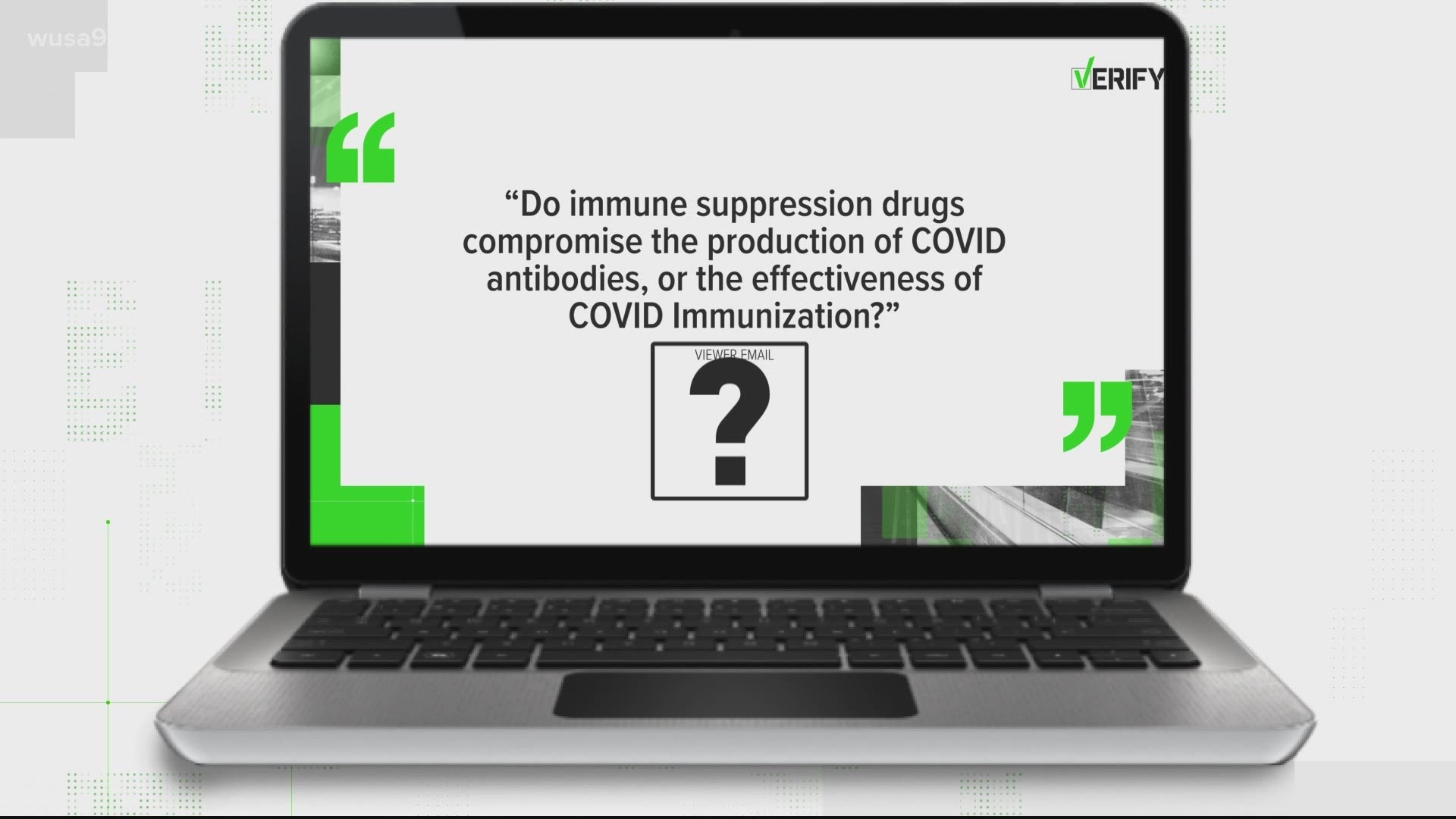WASHINGTON — The vaccines continue to roll out across the country and there are still a lot of questions about them, like what happens to people taking immunosuppression drugs?
When it comes to information on the vaccines, we are still learning on the fly. The Verify team seeks out experts to get you the answers.
We received an email from a viewer who asked:
Question:
“Do immune suppression drugs compromise the production of COVID antibodies, or the effectiveness of COVID Immunization?”
Answer:
We don’t know, yet.
Our Sources:
The drug companies Pfizer and Moderna and vaccines specialist Dr. Bill Moss from Johns Hopkins University.
What We Found:
We have start with an immune suppression drug is:
“They're used in conditions where the immune system is actually causing more damage, like an autoimmune disease where the immune system attacks our body,” Dr. Moss said.
These are diseases like rheumatoid arthritis, lupus, or AIDS.
Here’s the problem: if these treatments are designed to limit an immune systems’ reaction, does that mean it will also limit the reaction from the vaccine?
“Yeah, so the short answer is we do not yet know,” Dr. Moss said.
It’s not a satisfying answer. But the vaccine trials only contained a small number of people in this population.
According to Dr. Moss, people on the immunosuppression drugs had varying degrees of success generating the immune system reaction from the vaccine.
“With that said, COVID-19 vaccines are still recommended for persons receiving immunosuppressive drugs,” he said.
Unfortunately, the answer is: we don’t know for sure yet how the immunosuppression drugs compromise the efficacy of the vaccines. It could be just a little, or a larger effect.
It is going to take more time, and research, to find out.

